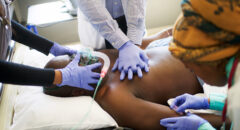
In our current modern world, the concept of heart health extends far beyond mere physical fitness. It encompasses a holistic approach that integrates nutrition, exercise, and rest to promote the well-being of the cardiovascular system and the overall vitality of the body and mind. Here, we will stress the importance of a balanced lifestyle that nourishes the heart through mindful food choices, regular exercise, and adequate rest.
The Power of Nutrition
Nutrition lays the foundation for a healthy heart. A diet rich in fruits, vegetables, whole grains, lean proteins, and healthy fats provides essential nutrients that support cardiovascular function and reduce the risk of heart disease. Incorporating foods with nutritional value such as leafy greens, berries, nuts, and oily fish into your meals can help lower cholesterol levels, regulate blood pressure, and maintain optimal heart health.
Furthermore, paying attention to portion sizes and limiting the intake of processed foods, refined sugars, and excessive sodium can prevent weight gain and alleviate strain on the heart.
Additionally, adopting mindful eating habits, such as savoring each bite, chewing slowly, and listening to hunger cues, fosters a healthier relationship with food and promotes better digestion and nutrient absorption.
RELATED: 10 Delicious Foods That Can Strengthen Your Heart
Exercise for Heart Strength
Regular physical activity is essential for keeping the heart strong and resilient. Engaging in aerobic exercises like walking, jogging, cycling, or swimming improves cardiovascular fitness, enhances blood circulation, and boosts heart function.
Aim for at least 150 minutes of moderate-intensity exercise or 75 minutes of vigorous activity each week to maximize the benefits of a stronger heart and reduced risk of heart disease.
In addition to aerobic workouts, incorporating strength training exercises into your routine helps build muscle mass, increase metabolism, and support overall heart health.
Activities such as weightlifting, resistance band exercises, or bodyweight workouts contribute to better cardiovascular endurance and improve the body's ability to efficiently utilize oxygen and nutrients.
The Importance of Rest and Recovery
While nutrition and exercise are vital components of heart health, adequate rest and recovery are equally crucial. Chronic stress and sleep deprivation can have a detrimental effect on the heart, increasing the risk of hypertension, inflammation, and cardiovascular disease.
Prioritizing quality sleep and stress management techniques, such as meditation, deep breathing exercises, or yoga, promotes relaxation, lowers cortisol levels, and improves heart rate variability.
Moreover, incorporating rest days into your exercise regimen allows the body to repair and strengthen muscles, prevent injury, and replenish energy stores.
All in all, balancing physical activity with periods of rest and recovery ensures optimal performance and longevity, safeguarding both heart health and overall well-being.
Embracing a Holistic Lifestyle
In essence, nourishing the heart requires a holistic approach that integrates mindful nutrition, regular exercise, and adequate rest into daily life. By prioritizing whole foods, engaging in diverse physical activities, and embracing moments of relaxation and rejuvenation, you can cultivate a lifestyle that promotes cardiovascular wellness and enhances the vitality of the body, mind, and spirit.
Let’s remember, that small changes can yield significant results. Start by incorporating one healthy habit at a time, whether it's adding an extra serving of vegetables to your meals, taking a brisk walk during lunch breaks, or carving out time for meditation before bed. With dedication and consistency, you can embark on a journey toward a healthier heart and a happier, more fulfilling life.
In conclusion, let us strive to nourish our hearts holistically, embracing the synergistic relationship between food, exercise, and rest. By nurturing our bodies and minds with intention and care, we can pave the way for a future filled with vitality, resilience, and heart-centered well-being.








